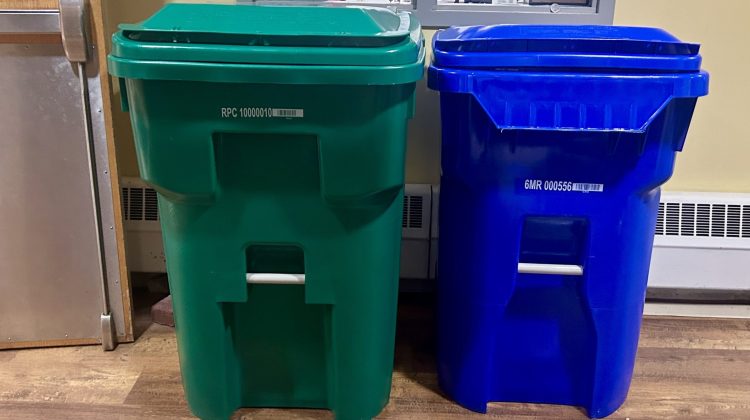MARBLEHEAD — The Marblehead Board of Health met with community members to discuss options for the Town’s new curbside trash and recycling contract, focusing on cost control, efficiency, and long-term sustainability.
The meeting, led by Director of Public Health Andrew Petty and Board of Health member Tom McMahon, drew community members eager to share their thoughts on how the new system should take shape.
Petty began by framing the discussion around three main objectives: managing costs, promoting waste reduction, and maintaining clean streets.
“We’re trying to find a cost-effective approach while changing behavior,” he said, adding that a true waste-reduction program would require years of public education and participation.
With Massachusetts landfills projected to reach capacity by 2030, Petty explained that the Town must plan for rising disposal costs.
The next contract will likely run for three years, with two optional one-year extensions. “That fifth year will be the most challenging,” Petty noted, warning that once local landfills close, trash will need to be trucked long distances, increasing expenses.
Much of the discussion centered on the size and frequency of curbside pickups. Petty explained that automated trucks could handle barrels from 35 to 96 gallons, but the standard household size would likely be 65 gallons.
“We’ll start with the 65-gallon toters and make adjustments as we go,” he said.
Residents like Ann Murphy raised concerns about how the new automated collection system would work in Marblehead’s historic district, where narrow streets and limited storage space make large bins impractical.
“There are streets that are two ways and not two cars wide. I don’t know how they would get around those curves,” as well as fitting an extendable arm to pick up the trash, she said.
Petty acknowledged the challenge, saying those areas might need special accommodations or manual collection.
“The historic district is its kind of own animal. There are some challenges with that,” he said. “I did drive around with some of the big companies to show them some of the difficult areas. And so those difficult areas would have to be addressed, but that tends to be (typical) in the historic downtown.”
The new contract will also clarify rules for leaf collection, requiring yard waste to be bagged and collected over an eight-week period in the spring and fall. Bulk items will continue to be handled through the Town’s Transfer Station.
Both McMahon and Petty addressed lessons learned from the Republic Services strike, which left trash piled up on local curbs for extended periods.
“I’d be lying if I said that didn’t influence me,” McMahon admitted. “There’s definitely some frustration there.”
Petty added that the new contract will include language imposing penalties if materials are left curbside too long.
Attendees like John Hassett urged the Town to pursue stronger waste-reduction strategies beyond collection logistics. Suggestions included expanding composting programs, incentivizing Black Earth participation, and exploring “pay-as-you-throw” pricing systems to reduce waste volume.
Petty said such ideas would need broad community support.
“Those are community-driven decisions,” he explained.
McMahon said, “We can’t just have a small group telling the majority of the town what to do.”
Still, both Petty and McMahon encouraged residents to bring proposals to Town Meeting for future consideration.
The Request for Proposals for the new curbside contract is nearly finalized and expected to be released in the “near future,” Petty said.
He said he anticipates bids from major waste firms, such as Republic and Waste Management. Once the new contractor is selected, new barrels will be distributed to every household, each tagged with RFID technology and serviced under warranty through the contract.





